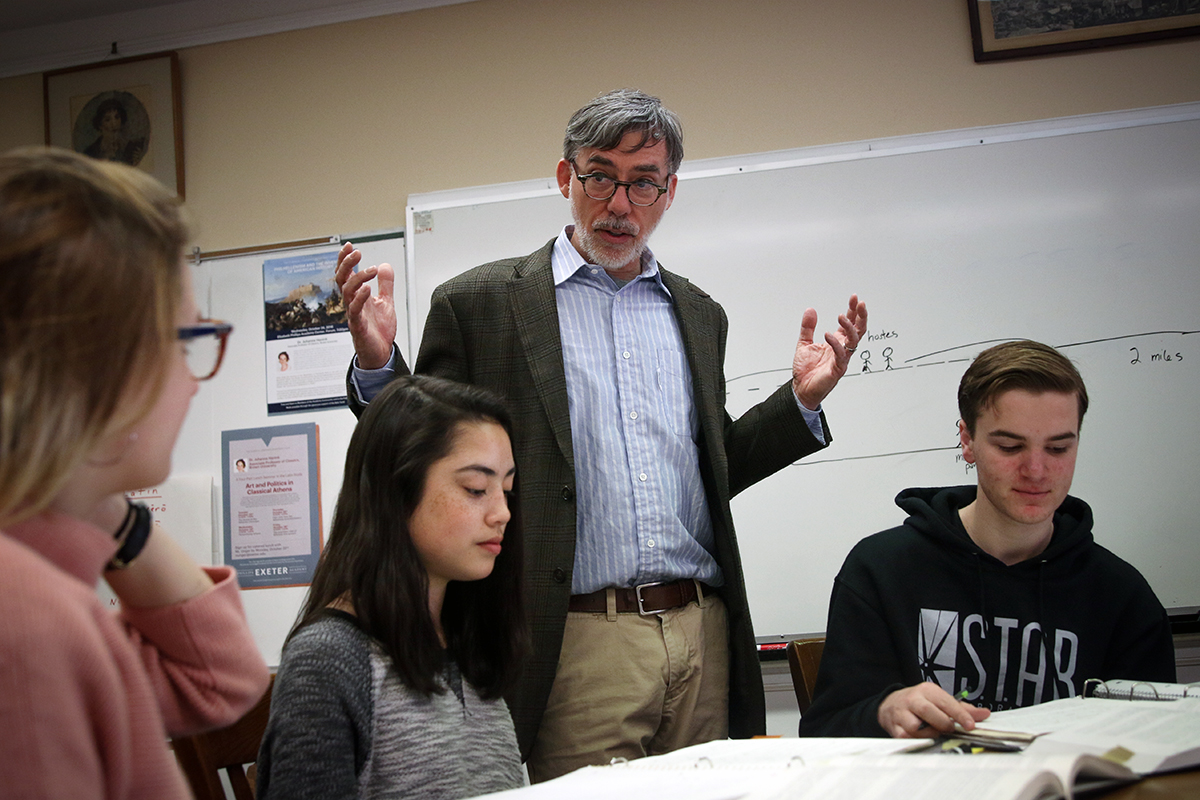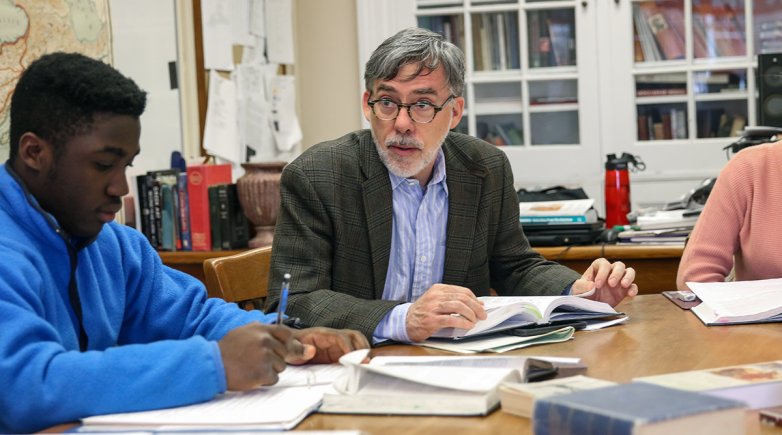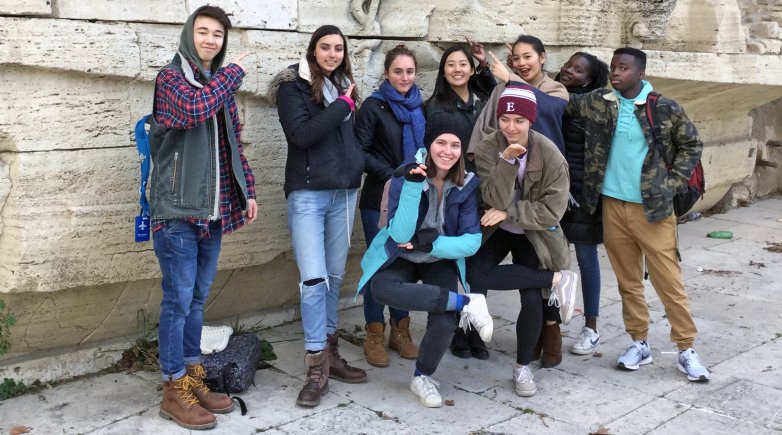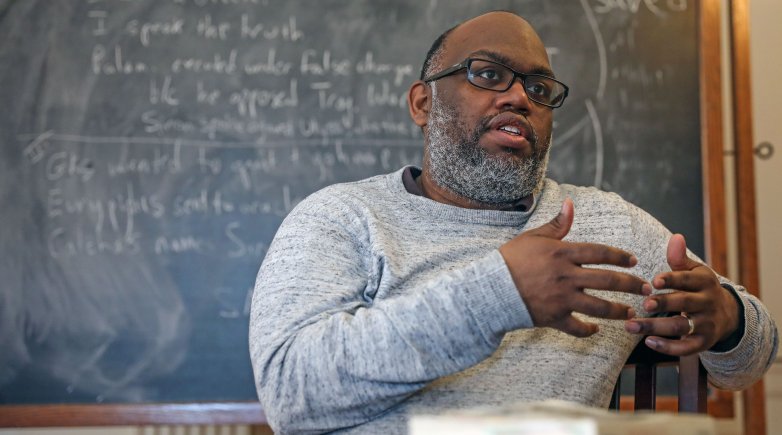Applying student-centered Harkness discussions and a new pedagogy, Hartnett is making ancient studies increasingly accessible and relevant to modern learners. “In a Greek textbook from 40 years ago, they read Xenophon’s Anabasis, which is basically a story about soldiers on a campaign,” he says. “Well, not every kid in 2020 is going to be interested in a phalanx or how many miles it is to Persepolis. Kids are interested in a wider variety of things, so we’ve added stories about how the Spartans made special provisions for training girls and readings that reflect the work of early Greek science. ... You can choose traditional readings that have been used for decades, or you can try to mix it up and break the mold a little bit, which is what we did.”
In true non sibi spirit, Hartnett plans to make the textbook available free, as an open source online document, for other institutions to use and adapt.

Department quick takes
Pursuing passions
“It’s a remarkable gift to our kids that we can support their interests completely, as far as they want to go — even if it’s for only one student,” says Hartnett. “There are not many schools in the country where a student can read Aristophanes’ Clouds in a one-on-one tutorial with their teacher, and that’s what we’re doing. ... [W]e have that option.”
Student-teacher collaboration
Hartnett’s new Introductory Greek textbook is a work in progress. During every class, students help refine it and make it better. One student, Charlie Preston ’21, worked during the summer with Hartnett to create indexes and appendixes for the textbook. “Charlie went through the whole text and tracked the recurrence of different vocab words and syntax,” Hartnett says. “He did an awful lot of work that was really helpful to me. ... And for Charlie, his Greek is a lot better because doing that kind of minute analysis and editing, you’re going to learn it better. ... And he loved it.”
Visiting scholars
Princeton University professor Dan-el Padilla Peralta visited campus for four days in early 2020. “With the visiting scholar program, we are able to introduce our kids and expose them to aspects of the field that we can’t do here because of constraints of expertise and constraints of time,” Hartnett says. Speaking at assembly and in small-group lunch seminars, Peralta explored the narratives of enslaved persons in ancient Rome and offered students a novel critique of the classics field as a person from a historically marginalized group.
Global experiences
Each year, faculty lead classical immersion programs in Rome, Italy and France that expand the boundaries of the classroom. Students are given the opportunity to examine ancient monuments set within their historical and literary context, dig in actual archaeological excavation sites, and live with host families. “These experiences obviously amplify what we’re doing in the classroom,” Hartnett says. “We’re reading about Cicero’s speeches and then [students] can walk in the Roman forum and see where the speech was given. ... They also get their minds and experiences expanded by the fact, for many of them, that they’re leaving the country for the first time.”




